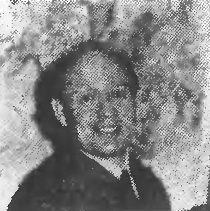![]()
The Words of the O'Neill Family
|
|
The Words of the O'Neill Family |

Dr. O'Neil took his degrees in Classics, Greek philosophy and Neoplatonism at the University of London and the University of Liverpool. He is now a professor of philosophy our church's International Pioneer Academy in San Francisco, USA.
If the unexamined life is not worth living (in the sense of life without reflection altogether), then the over-examined life is not worth living either (in the sense of a constant re-examination of positions that becomes not aid to living but a substitute for it).
The kind of person that the intellectual life' has tended to produce is a portrait humanity thrust into the confines of an 'academic' strait-jacket that can exercise a tyrannical control over dress, manner, home as well as school life, and determine attitudes to wife, children, friends, community and nation, not to mention wealth and material standards of living.
The lover of wisdom is not at home in such an atmosphere, because he wishes to see and experience humanity writ as large as possible and join in all of its tasks. Plato warns that the greatest damage done to philosophy is often the behavior of its `professed' followers who do not meet the requirements of the 'love of wisdom', but give it a bad name by reason of their 'profession' of it. Yet just because the 'professed practitioners' of philosophy fail to impress, the lover of wisdom cannot give up the thing itself which they profess to practice i.e. the love of wisdom.
If this is valuable in itself, when put to the test, he must pursue and practice it either by himself, or in the company of those who are of like mind.
But where are those of like mind? In departments of 'philosophy' in universities? The love of words, of philology, of linguistic analysis, even of logic does not entail the love of wisdom.
Exposition of the thought of others says nothing concerning the wisdom of the expounder. History of thought comes from historians of a kind, but they are not necessarily lovers of wisdom.
All these pursuits may be ancillary to, even some preparation for the love wisdom, but they do not constitute it. There is a danger of retailing the opinions of others, of eristic disputation, of mimicking the wise man, of clever discourse unsupported by consonant action.
Books, articles and other publications are valued as though their quantity, especially, were some sure indication of the author. Plato points out that the primary purpose of the written word is to remind ourselves what we were thinking at a given time.
Its function as a means of communication with others is secondary, and liar le to break down because the author is not present to explain his thought to the reader. Yet 'philosophers' are evaluated not by their spoken word, nor by their conversation and behavior, but almost exclusively by what they have written and published.
In point of fact, he who writes little or nothing may be the true lover of wisdom, an informal conversation and behavior may be surer guides to his evaluation than any written work.
The intimate dialogue of personal acquaintance is a more completely human means of communication, in I-Thou relationship rather than I-It relationship, as between a reader and the written words of a book. Knowledge of books and writings may give the appearance of wisdom, but not the reality.
Must the lover of wisdom then start his own 'school of philosophy' -- a school for those who have already had their fill of language, logic, history of thought and exposition of the thought of others; a school in the original Greek sense of the word i.e., a place of leisure where people have the time to think and discuss, and, above all live fully; a school devoted to constructive personal relationship, not to lectures, books or publications; a school in vital contact with contemporary life, not an 'academic' ghetto; a school interested in peace and war, social justice, race relations, contemporary youth, business capital, labor, pleasure, leisure, recreation, in the total sum of humanity now and for the future; a school that looks to the findings of psychology, sociology, humanism and religion in an effort to comprehend the whole man, not to dissect him into parts or force him into preordained categories of thought; a school that will help those who wish to become lovers of wisdom, and that will help society by its insights, its reflections, its offer of service to any section of the community of mankind; a school initiated and maintained by genuine 'professors' of `philosophy' i.e. those who profess(show by their behavior and actions) the love of wisdom (a knowledge integrated with conviction and experience); a school that will graduate true doctors(teachers) of philosophy (love of wisdom)? But does such a school exist anywhere at present, or in any college or university, or will any 'department' of 'philosophy' ever become such?